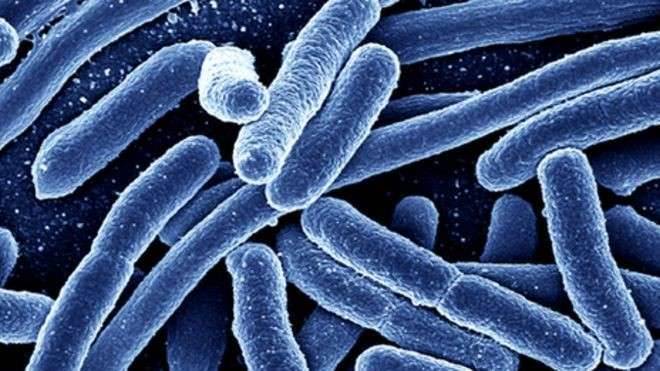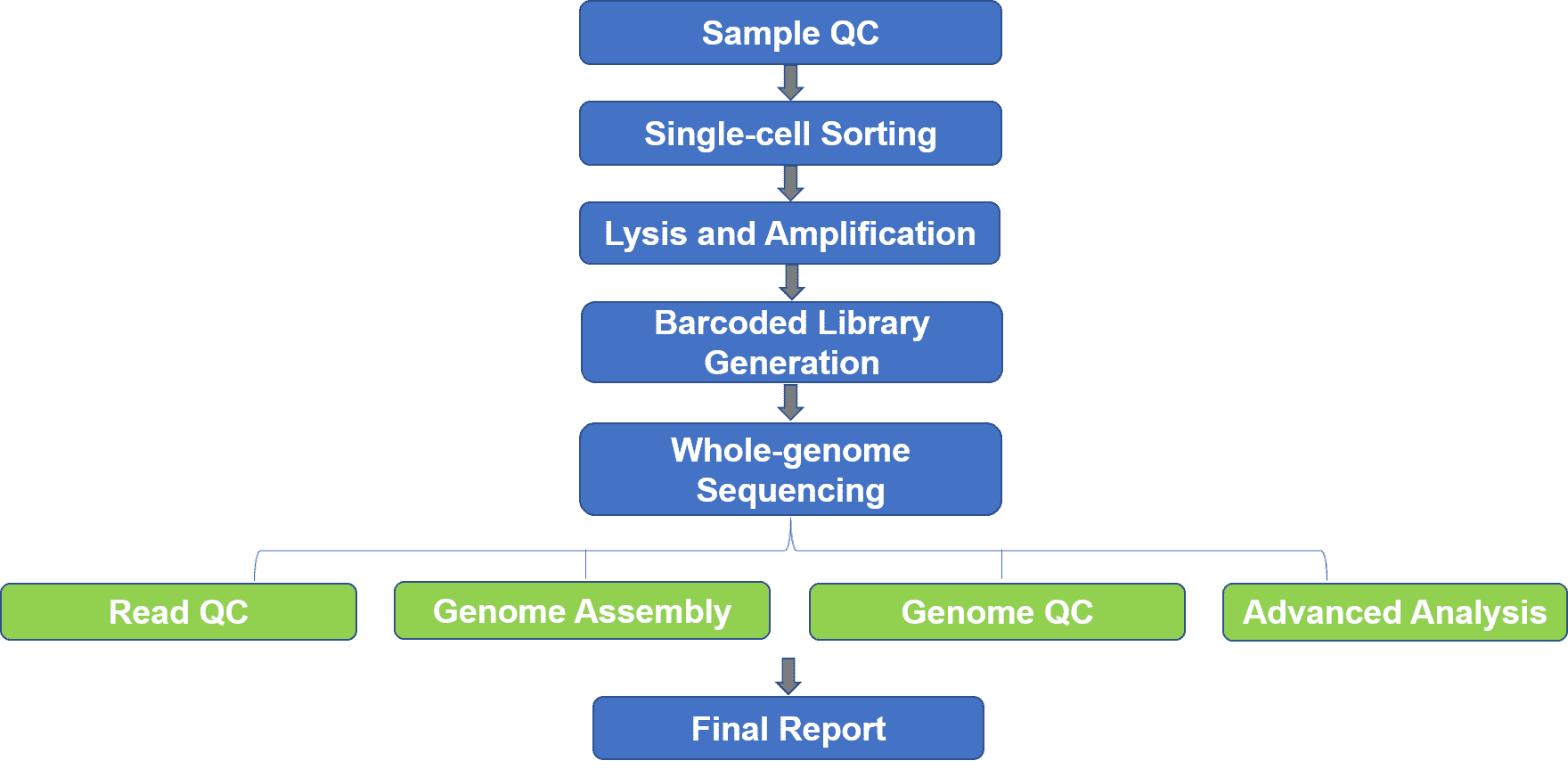
Single-cell sequencing methods has led to a paradigm shift in the field of microbial genomics, away from microbial population analysis and toward comprehensive studies of individual microorganisms. We provide single-cell genome sequencing to decipher the diversity of microorganisms. The workflow of this service generally includes single-cell preparation, cell lysis, single-cell genome amplification, library construction and whole-genome sequencing. Depending on the type of samples, we utilize advanced flow-assisted cell sorting (FACS), laser-capture-microdissection, micromanipulation or microfluidic platform to perform single-cell isolation. The isolated cells are subsequently lysed and each genome is amplified through whole-genome amplification (WGA) methods (multiple-displacement-amplification (MDA) or MALBAC). After WGA, the amplified DNA is used to create libraries for Illumina sequencing.
Microbial single-cell genome sequencing can be used to discover low-abundance microbial members, reveal phylogenetic relationships, infer microbial evolution and explore potential biosynthetic/metabolism processes. It has been applied to a wide range of fields such as scientific research, epidemiology, human health and drug development.






